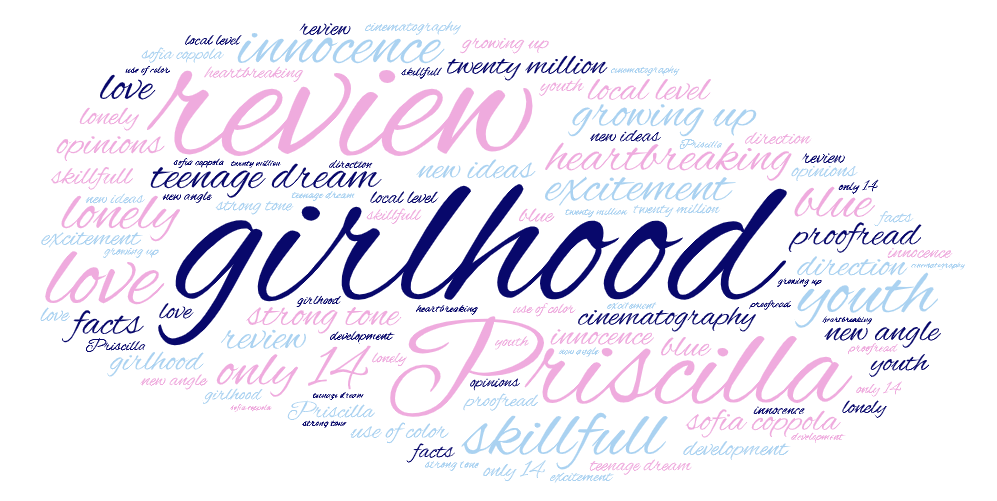Sitting in the dark theatre, echos of “I Will Always Love You” by Dolly Parton haunting my thoughts, teary eyed and dismayed by the line of credits that came too quickly, I feel in my soul that this movie I just watched will be one that sits with me for the next few days. “Priscilla,” skillfully directed by Sofia Coppola, unfolds the poignant yet gripping narrative of Priscilla Presley, a young woman who captures the heart of rock and roll legend Elvis Presley. The film commences with a glimpse into young Priscilla’s life at the age of 14 in Wiesbaden, Germany, amidst the backdrop of the Vietnam War. An invitation from an army officer, a close acquaintance of Elvis, leads Priscilla to attend one of Elvis’ dinner gatherings with his wife, initiating an instant connection between Priscilla and the iconic musician.
Initially presenting itself as a tender love story, the movie delves into the intricate emotions of teenage romance, skillfully portraying the essence of young love. Its soundtrack, rich with romantic melodies from the 1950s, curiously lacks Elvis’s own tracks. However, the narrative takes an unexpected turn, gradually unraveling the darker realities behind Elvis’ persona, exposing his pervasive substance abuse, controlling behavior, and a web of deceit. To the audience this came as a shock as just a few minutes before he seemed to be the man of every teenage girls dreams, which is exactly how Coppola intended the audience to feel.
Sparing no detail, Coppola employs meticulous camera work to unveil even the seemingly ordinary aspects of Priscilla’s life, especially when Priscilla first arrives to the Presley house and begins to unpack her quotidian products like makeup, toothpaste, and perfume. The cinematography is masterful, and compels the audience to see different sides of Elvis, down to his manipulation and physical abuse all without saying it.
Moreover, Coppola aptly captures Priscilla’s character evolution from her tender age of 14 to her maturation at 27, portraying her growth and unwavering resilience. But while Coppola captured her on paper, Caliee Spaeny captured her essence on screen, forcing me, a teenage girl, to feel nothing but sympathy for Priscilla and the loss of her innocence throughout the movie.
In essence, “Priscilla” emerges as an unfiltered portrayal of Priscilla Presley’s early life, skillfully addressing themes of adolescence, abusive relationships, and the complicated game of genuine love, presented as a triumphant cinematic achievement. This film will leave you analyzing it for days, unraveling the complexities of each scene over and over again in your head, down to the color Priscilla was wearing in each scene. While Elvis is still an enigma to me, I can now commiserate with Priscilla and be moved by her resilience throughout life.




